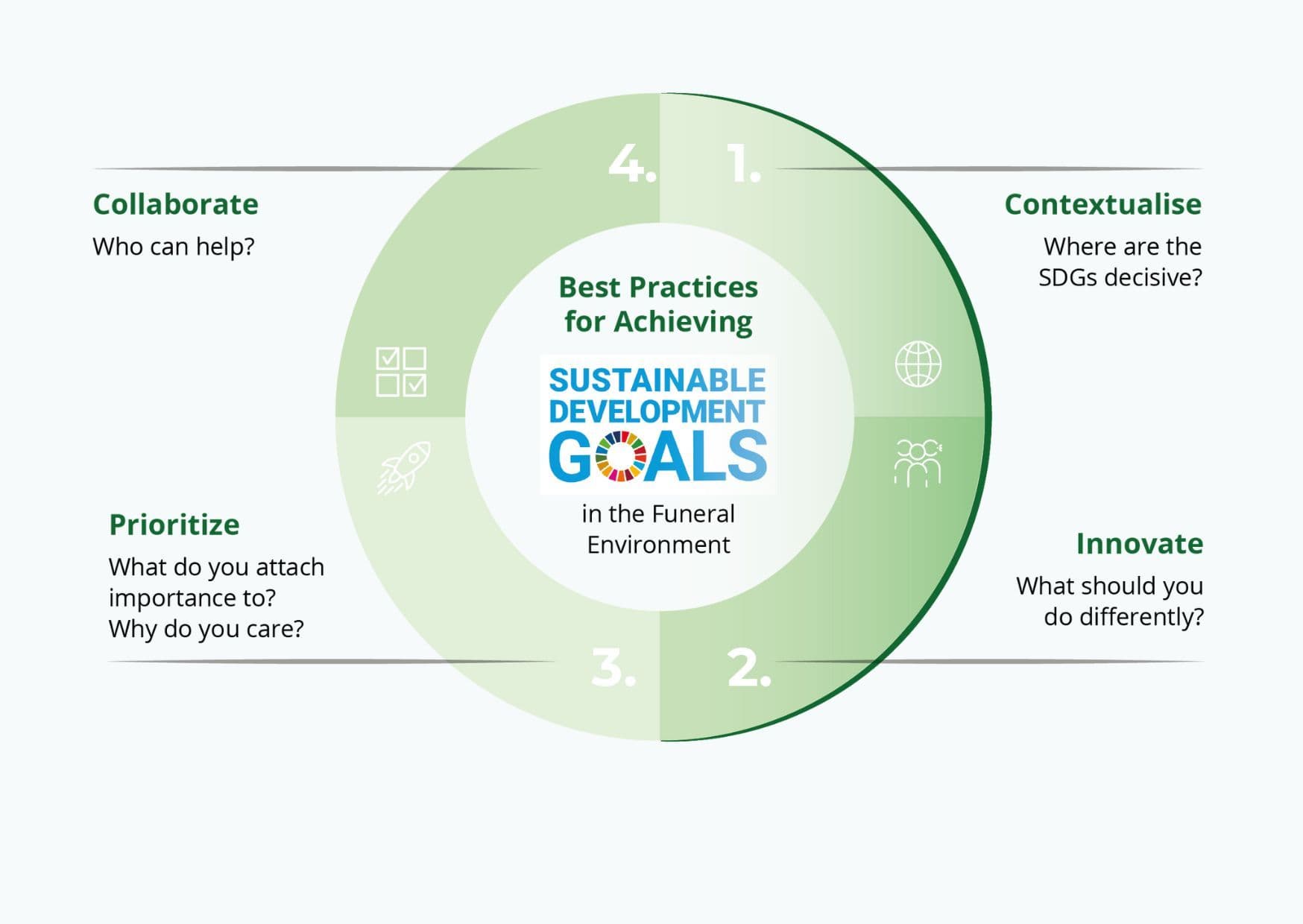SDGs in the Funeral Environment: Building a Sustainable Legacy
9th May 2025

By Nuria Capdevila, Founder and CEO of CIRCLE Corporation, Spain
Would anyone truly wish to win a championship trophy without ever playing a single game? Sustainability is much like 'winning the game.' As Yehuda Berg notes in The Book of Dreams: 'struggling to win through a long and arduous season while overcoming real obstacles - that's what gives meaning and purpose to the concepts of winning and victory.'
At the heart of every funeral service provider lies a fundamental truth: our work extends beyond providing a service; we are guardians of human dignity during life's most sensitive moments. As we approach 2030, this responsibility takes on a new dimension: becoming stewards of our planet's future through the integration of Sustainable Development Goals (SDGs).
The Call to Action: SDGs and the Funeral Environment
The clock is ticking. With just five years remaining to achieve the United Nations' SDGs, our sector stands at a crossroads. The challenge ahead is not just a responsibility but also an unprecedented opportunity to redefine how we honour both the departed and the world they leave behind.
Why do SDGs matter to our sector? They provide a roadmap for embedding sustainability into every aspect of our operations. From ensuring well-being through compassionate end-of-life care to developing green cemeteries and promoting responsible consumption, SDGs resonate with the funeral services core values. This shift isn't just a trend; it's a fundamental change in how society views the relationship between end-of-life services and environmental stewardship.
Best Practices for Achieving SDGs in the Funeral Environment
To implement SDGs effectively, businesses should focus on four key practices:
- Contextualize: Adapt SDGs to your local and operational context. Global goals must be translated into actionable and relevant initiatives tailored to a business’s local and operational context. In the funeral services sector, geographical, cultural, and regulatory factors often dictate the most effective strategies. For example, woodland burial parks in the UK align with regional conservation goals by preserving native species while providing natural resting places. By tailoring global objectives to specific settings, businesses can increase both the relevance and impact of their initiatives, fostering stronger connections with local communities and stakeholders.
Contextualization transforms the SDGs from abstract global objectives into practical, localized actions. - Innovate: Redefine traditional models to align with sustainable practices. Such as, in the United States, Recompose's human composting has pioneered human composting, which has now been legalized in six states since 2019. Similarly, Aquaternal Innovations Inc. in Canada has revolutionized the market with their water cremation systems, developing patented technology that significantly reduces the environmental impact of final disposition. These innovations demonstrate how our sector can adapt and evolve while maintaining its core mission of dignity and care. From soil-based transformation to water-based solutions, funeral service providers are proving that sustainability and reverence can go hand in hand.
- Prioritize: Identify the most relevant SDGs for your business. For funeral service providers, this often means focusing on SDG 3 (Good Health and Well-being), SDG 11 (Sustainable Cities and Communities), and SDG 12 (Responsible Consumption and Production). For example, some cemeteries in Spain are reducing water use by 40% through innovative irrigation systems while creating biodiversity gardens that enhance local ecosystems.
- Collaborate: Collaboration is at the heart of SDG 17 (Partnerships for the Goals). Addressing the complexity of the SDGs requires joint efforts between businesses, governments, NGOs, and other organizations. For example, FriedWald's memorial forests in Germany demonstrate how collaboration between environmental organizations and the funeral sector can protect natural habitats while providing meaningful and sustainable memorial spaces.
Embracing partnerships not only enhances the effectiveness of sustainability initiatives but also strengthens relationships with stakeholders, creating shared value for all parties involved.
Would you like to read the whole article?
Read the spring issue of THANOS magazine - you can read online at pages 16-18
Share this article